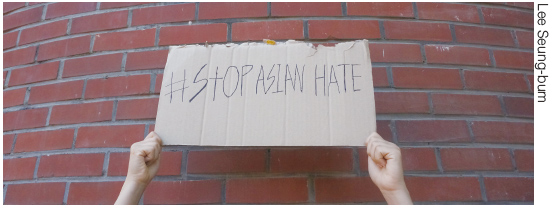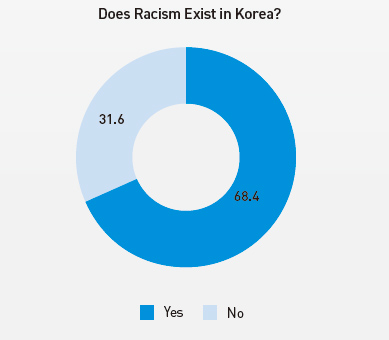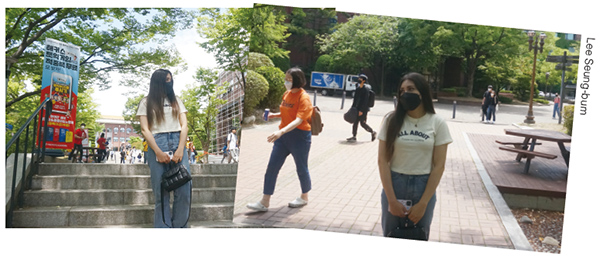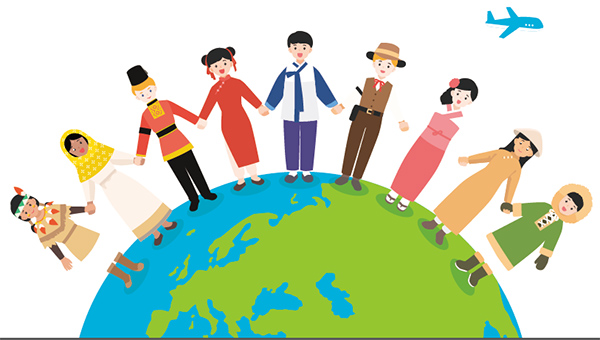
A Deepening Hatred against Asians
Racism against Asians is worsening day by day since the outbreak of COVID-19. This is because of the perception that COVID-19 has spread around the world because of Asians. On March 16, 2021, a white man in Atlanta, Georgia shot and killed eight people, including four Korean women. Six out of the eight victims were Asian women, but the local police denied that the murder was an Asian hate crime, insisting that “sexual addiction” was the criminal’s motivation. Since then, the worldwide “StopAsianHate” movement has spread, starting with social media, especially in Korea. A movement against racism toward Asians has attracted increasing attention since BTS posted the hashtag #StopAsianHate on their official twitter account. Nevertheless, it is undeniable that hatred and discrimination against Asians still exist deeply in our society. Many Asians are still fighting for the obvious. However, there is a point to be considered beforehand. Racism is also deeply rooted in Korean society, although, recently, there has been a movement in Korea that says hatred of other races should be stopped.
Aspects of Racism in Korea
According to a survey of 338 immigrants in 2020 by the National Human Rights Commission of Korea (NHRCK), 68.4 percent of the respondents answered that “racism exists in Korea.” The reasons for discrimination were lack of proficiency in Korean language, nationality, ethnicity, race, and skin color. The discrimination is especially serious against Southeast Asians. There have been many cases in which Southeast Asian workers were not properly paid or were assaulted. Furthermore, in Korean media, Southeast Asians and Korean-Chinese are always portrayed as poor workers and cruel criminals, respectively. In fact, in August 2021, the hashtag #SouthKoreaRacist appeared on Indonesian social media, such as Instagram and Twitter.
This is because of inappropriate remarks by South Korean shooter Jin Jong-oh, which sparked the anti-Korean sentiment. Jin Jong-oh said in an interview, “The International Olympic Committee made a mistake in preparation. It is nonsense for a terrorist to be the winner.” The player whom Jin Jong-oh mentioned was Javad Porugi of Iran. After the incident, Jin Jong-oh apologized on his Instagram page, saying, “I caused controversy with inappropriate remarks,” but by then, many people had already felt ashamed of Koreans for their racism. In addition, black people are disparaged by using the word heukhyeong (black brother, in English), while white women are called baengma (white horse, in English) and get sexually objectified. Although both words originally did not have the meaning of insulting, they have become discriminative words because of overemphasis of skin colors.

The UOS Times interviewed foreign students who are currently living in Korea to see how racism actually exists in Korea. The following is an interview with Student A (Dept. of English Language and Literature, ’19) from Europe.

Q1. Have you ever experienced racism in Korea? If so, please share the experience in detail.
A1. First of all, people often look at me like an animal in a zoo. When I first came to Korea and was about to enter a club, they denied my entrance because I was a foreigner. Moreover, older people cursed at me. Once, an old lady said, “Stay in your country. Why are foreigners coming to Korea?”
Q2. Compared to other countries, is there any unique characteristic of Korean racism?
A2. Korea has less racial diversity than other countries. Most of the people are Asian. Since Korea has an absolutely large number of Asians, it seems that they look at foreigners very differently. Plus, the lack of racial diversity makes stereotypes about other races easier to be formed. For example, most Koreans think every white person can speak English fluently, even though people from various language cultures may have the same white skin color. In my case, the professor frequently asks me English-related questions during the class, which I cannot answer. This is obviously because I am white.
In addition, to find out another aspect of racism in Korea, The UOS Times asked about the experiences of Student B from Middle East Asia.

Q1. Have you ever experienced racism in Korea? If so, please share the experience in detail.
A1. Both institutional and personal discrimination exist in Korea. Although there is a bill that prohibits racism, there is no provision on what discrimination is specifically prohibited. Personally, there were people who cursed at Iranians when I was looking for a house. Also, I noticed that Koreans’ reactions were different when I spoke and when my white friend spoke.
Q2. Compared to other countries, is there any unique characteristic of Korean racism?
A2. Essentially, Koreans do not take the issue of racism seriously. There is a lack of both a system and an awareness of racism compared to other countries. Also, I always feel that discrimination against the same Asians is extreme.
In this interview, one notable characteristic of Korean racism was found. Discrimination against the same Asian race was even more severe. In November 2014, news of a man who was denied employment for a private English class became a hot topic on social media. The reason why the English class refused to hire him was that he was a Southeast Asian. The academy reportedly texted to him, “I’m sorry, but we want a white teacher.”
Another important point in this interview is that the legal system and awareness of racism are both insufficient in Korean society. Systems, such as the Employment Permit System (EPS*), make it difficult for foreigners to settle in Korea. Moreover, Korea has many laws that prohibit discrimination on the grounds of race, ethnicity, skin color, religion, and so on. However, most of them are mere declarations and are not practically binding. Overseas governments are already implementing effective laws to prevent racism and collecting statistics on hate crimes. For example, Australia and the U.S. clearly prohibit racism in business, education, and housing by law. They also help minorities through compensation for damages and corrective orders for discriminatory policies and practices. Even the international community has warned Korea. In December 2018, the Committee on the Elimination of Racial Discrimination recommended that the Korean government legislate the definition of racism and enact anti-discrimination laws that cover racism. They also expressed concerns that the Korean government is not making any efforts to enact anti-discrimination laws at all. As a member of the ever-diversifying world, Korea must now take active measures to prevent racism.
* EPS is a system in which when an employer applies to the Korean government for a worker, the government selects foreigners, issues them a work visa, and permits them to enter Korea. Under the system, foreign workers are allowed to make a turnover only up to three times. Also, it is difficult for them to act against unfair treatment by employers. To prove unfair treatment and change their jobs, they have to go through legal procedures that are unfamiliar to foreigners.

Self-reflection
Are Koreans’ hands clean? Did they not discriminate anyone before they asserted stopping discrimination against Asians? Domestic public opinion is furious watching Asians suffer from hate crimes and racial discrimination abroad, but there is a lack of act and awareness about the racism taking place in Korea. In addition, even though racism exists, it is not even recognized as racism. It is essential that everyone works hard not only to explicitly protect their rights by law but also to improve their awareness of other races. As we saw in the interview of Student A above, recognizing racism that exists unconsciously, such as thinking that white people will speak English well, is the most important thing in preventing racism. It cannot be denied that Korea, which is rapidly turning into a multicultural society day by day, is now responsible for creating a society without any discrimination.

Lee Seung-bum
okok3037@uos.ac.kr

